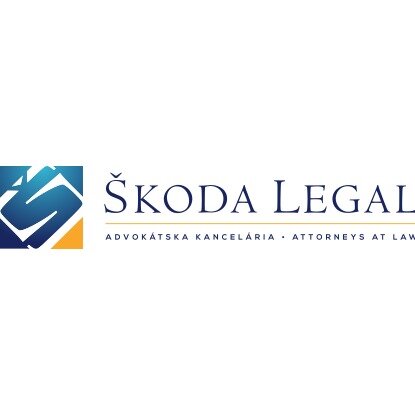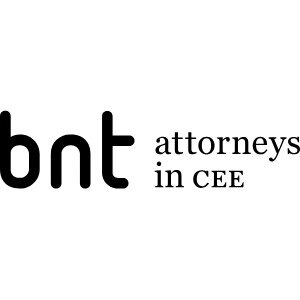Best Creditor Lawyers in Slovakia
Share your needs with us, get contacted by law firms.
Free. Takes 2 min.
Or refine your search by selecting a city:
List of the best lawyers in Slovakia
About Creditor Law in Slovakia
Creditor law in Slovakia encompasses various legal principles and rules concerning the rights and obligations of creditors and debtors. It is aimed at providing a structured process for repayment, debt collections, and the orderly handling of insolvency situations. Slovakia, as part of the European Union, follows both domestic and EU regulations which influence local creditor laws and practices.
Why You May Need a Lawyer
Individuals or businesses may require legal assistance from a creditor lawyer in Slovakia under various circumstances. These can include pursuing debt collection from a non-paying debtor, negotiating debt restructuring, engaging in insolvency proceedings, or dealing with cross-border debt issues. A lawyer can provide guidance for navigating complex legal procedures, ensuring compliance with relevant laws, and protecting your financial interests.
Local Laws Overview
Slovak creditor laws are primarily governed by the Civil Code and specific regulations such as the Act on Bankruptcy and Restructuring. Key aspects include:
- Debt collection procedures: Legal avenues available include issuing a payment order and pursuing court action if necessary.
- Secured vs. unsecured creditors: Differentiation in handling and priority during debt recovery or insolvency proceedings.
- Enforcement of court decisions: Using judicial and private enforcement to collect debts once a court ruling has been made.
- Consumer protection: Regulations to ensure fair treatment and protection of consumers facing debts.
Frequently Asked Questions
What is the process for collecting a debt in Slovakia?
The process usually begins with an extrajudicial demand for payment. If this fails, a court action can be initiated, often starting with a motion for a payment order. If the debtor does not contest it, the order becomes enforceable.
How long does it take to recover a debt through legal proceedings?
The timeframe can vary significantly depending on whether the debtor contests the debt and the complexity of the case, ranging from several months to years.
What are the rights of creditors during insolvency procedures?
Creditors have the right to file claims, attend creditors' meetings, and vote on the debtor's restructuring plan if applicable.
Is there a statute of limitations for debt collection?
Yes, the general statute of limitations for debt recovery in Slovakia is three years, but specific types of debt may have different limitations.
Can foreign creditors enforce their claims in Slovakia?
Foreign creditors can enforce claims in Slovakia, often requiring them to fulfill conditions under EU regulations or bilateral treaties if applicable.
What is a secured creditor?
A secured creditor has a legal claim on specific assets of the debtor, which serves as collateral for the debt, giving them priority over unsecured creditors in insolvency proceedings.
What are the costs associated with debt recovery services?
Costs can include court fees, legal fees, and potential costs for enforcement; these are often influenced by the amount and complexity of the debt.
Is it possible to negotiate a debt settlement?
Yes, creditors and debtors can agree on a debt settlement. Legal assistance can facilitate negotiations to ensure favorable terms.
What protections are there for consumer debtors?
Consumer protection laws prevent unfair practices in debt collection and offer mechanisms for contesting illegitimate claims.
What can creditors do if a debtor declares bankruptcy?
Creditors can file claims to be considered in the distribution of assets during bankruptcy proceedings.
Additional Resources
For those seeking further information or assistance regarding creditor issues in Slovakia, the following resources can be of help:
- Ministry of Justice of the Slovak Republic: Provides information on legal proceedings and rights.
- Slovak Bar Association: A directory of licensed lawyers specializing in creditor rights.
- Slovak Chamber of Commerce and Industry: Offers resources and support for businesses facing creditor issues.
Next Steps
If you need legal assistance with creditor-related issues in Slovakia, consider the following steps:
- Consult with a lawyer who specializes in creditor law to assess your situation and discuss potential legal strategies.
- Gather all relevant documentation and information pertaining to the debt or insolvency case.
- Consider mediation or negotiation as preliminary steps before initiating formal legal actions.
- Stay informed about your rights and obligations under Slovak creditor laws to make well-informed decisions.
Lawzana helps you find the best lawyers and law firms in Slovakia through a curated and pre-screened list of qualified legal professionals. Our platform offers rankings and detailed profiles of attorneys and law firms, allowing you to compare based on practice areas, including Creditor, experience, and client feedback.
Each profile includes a description of the firm's areas of practice, client reviews, team members and partners, year of establishment, spoken languages, office locations, contact information, social media presence, and any published articles or resources. Most firms on our platform speak English and are experienced in both local and international legal matters.
Get a quote from top-rated law firms in Slovakia — quickly, securely, and without unnecessary hassle.
Disclaimer:
The information provided on this page is for general informational purposes only and does not constitute legal advice. While we strive to ensure the accuracy and relevance of the content, legal information may change over time, and interpretations of the law can vary. You should always consult with a qualified legal professional for advice specific to your situation.
We disclaim all liability for actions taken or not taken based on the content of this page. If you believe any information is incorrect or outdated, please contact us, and we will review and update it where appropriate.
Browse creditor law firms by city in Slovakia
Refine your search by selecting a city.












